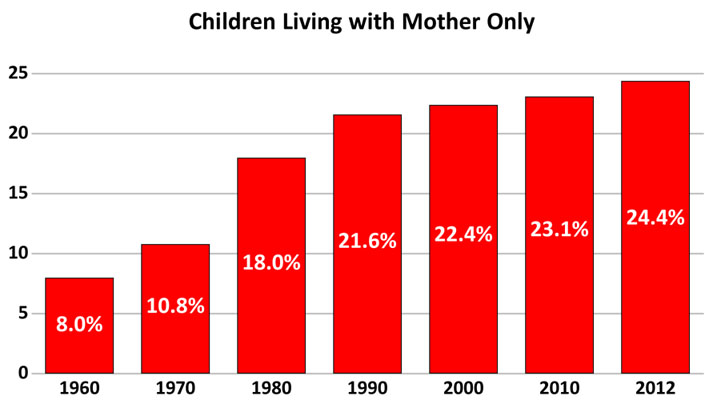Random Politics & Religion #18
|
Random Politics & Religion #18
Thank god I was starting to get a complex
Ramyrez said: »  I keep meaning to watch this but I always forget about it. I guess if I really worked hard at it like the Simpsons I could piece together all of Twin Peaks on youtube !
Asura.Kingnobody said: » Only "Twin Peaks" I care about comes from a pornstar. Thank you sir another one to my list...! fonewear said: » I guess if I really worked hard at it like the Simpsons I could piece together all of Twin Peaks on youtube ! The problem is you might think you messed up and got things out of order or missed something, but you didn't, it's just that none of us are sure if David Lynch is a genius or just *** with us (or a genius who is *** with us). YouTube Video Placeholder
Twin Peaks is also a family restaurant !
   What's a nuclear family? Mutants?
Valefor.Sehachan said: » What's a nuclear family? Mutants? Classically speaking it's defined as the husband/wife/kids basic family unit. Mutants is more fun, I'll stick to that version.
 Given divorce is significantly easier now, that's actually a pretty drastically small increase over the past 30 years.
Huh, look at that. A political cartoon that works bipartisanly.
If only Congress could take the hint. Well according to the 3 seconds of research I did...
According to U.S. Census Bureau,3 out of about 12 million single parent families in 2014, more than 80% were headed by single mothers. Today 1 in 4 children under the age of 18 — a total of about 17.4 million — are being raised without a father4 and nearly half (45%) live below the poverty line. Ramyrez said: » If only Congress could take the hint. 
fonewear said: » Well according to the 3 seconds of research I did... According to U.S. Census Bureau,3 out of about 12 million single parent families in 2014, more than 80% were headed by single mothers. Today 1 in 4 children under the age of 18 — a total of about 17.4 million — are being raised without a father4 and nearly half (45%) live below the poverty line. Ehh. This all gets into some fairly anecdotal areas for my tastes. Single parent vs. classic family is really questionable when it comes to "quality of childhood experience" because there are so many other factors. Is mom a good parent? Is dad shitty? Is dad a good parent but the child is with mom because of classic reasons? Are both parents shitty? Are both parents good parents individually but make for a bad experience together because they don't get along with each other? So many variables. Ramyrez said: » fonewear said: » Well according to the 3 seconds of research I did... According to U.S. Census Bureau,3 out of about 12 million single parent families in 2014, more than 80% were headed by single mothers. Today 1 in 4 children under the age of 18 — a total of about 17.4 million — are being raised without a father4 and nearly half (45%) live below the poverty line. Ehh. This all gets into some fairly anecdotal areas for my tastes. Single parent vs. classic family is really questionable when it comes to "quality of childhood experience" because there are so many other factors. Is mom a good parent? Is dad shitty? Is dad a good parent but the child is with mom because of classic reasons? Are both parents shitty? Are both parents good parents individually but make for a bad experience together because they don't get along with each other? So many variables. That's why I stopped at 3 seconds... Asura.Kingnobody said: » It would....take an act of  Ramyrez said: » Given divorce is significantly easier now, that's actually a pretty drastically small increase over the past 30 years. Ragnarok.Nausi said: » Ramyrez said: » Given divorce is significantly easier now, that's actually a pretty drastically small increase over the past 30 years. Assuming that the marriages are stable (happy too, preferably) and safe, nurturing environments for the children...I agree. Ramyrez said: » Ragnarok.Nausi said: » Ramyrez said: » Given divorce is significantly easier now, that's actually a pretty drastically small increase over the past 30 years. Assuming that the marriages are stable (happy too, preferably) and safe, nurturing environments for the children...I agree. YouTube Video Placeholder In actual news...ish:
The Media Can’t Stop Talking About Itself Quote: We have all had the experience at some point in our lives of sitting across from someone whose favorite subject is themselves. This is true of nearly everyone to some respect – but for some people, it is a particularly acute problem. It means that the most important topic at the table revolves completely around them. You may have had the experience of asking someone a question at the beginning of lunch – about their life, a book, a recent trip – and then realize as you go to pay the check that they have not asked you a single question since about your own equivalent life, reading, or travel. Personally I find people like this endearing and interesting, particularly if they have some enjoyable insights into subject matter. I talk enough during the day and it keeps me from running out of words, and a conversation with a smart, witty guest can leave you feeling rejuvenated even if they’re talking the entire time about what they are up to. But imagine if you were only ever around people like this, who wanted to spend an overwhelming percentage of a day-long conversation talking about what they and their ideological allies have been up to, the challenges they and their friends face in such trying times, and most of all, the petty slights they have to endure on a daily basis. Congratulations! You are watching cable news. Yesterday President Donald Trump did several significant things. There was real news yesterday regarding the differences in policy between the administrations – not just the executive orders and the withdrawal from the Trans-Pacific Partnership, but also the advancement of Mike Pompeo to head the CIA and the clash between Senate Republicans and Chuck Schumer over a broken nomination vote deal. In other words, this was not like one of those Mondays in the summer when there is so little to talk about in the world of sports that Mike and Mike are reduced to arguing about which fruit you ought to wash. There was plenty of real news to talk about. Instead, journalists were still binging on facts I don't like. Cable news outlets spent segment after segment rehashing the narrative question of how Sean Spicer did in his first briefing and the question of the contentious relationship between this White House and the press. They were still talking about crowd size and the CIA speech from the weekend last night, instead of paying attention to the actual policies that matter to people and will impact their lives. The situation really hasn’t changed in the twenty years since James Fallows wrote his piece for the Atlantic about why people hate the media. Quote: When ordinary citizens have a chance to pose questions to political leaders, they rarely ask about the game of politics. They want to know how the reality of politics will affect them—through taxes, programs, scholarship funds, wars. Journalists justify their intrusiveness and excesses by claiming that they are the public’s representatives, asking the questions their fellow citizens would ask if they had the privilege of meeting with Presidents and senators. In fact they ask questions that only their fellow political professionals care about. And they often do so—as at the typical White House news conference—with a discourtesy and rancor that represent the public’s views much less than they reflect the modern journalist’s belief that being independent boils down to acting hostile. The limited curiosity that elite reporters display in their questions is also evident in the stories they write once they have received answers. They are interested mainly in pure politics and can be coerced into examining the substance of an issue only as a last resort. Perhaps a few of the smarter members of the media will see past this in the coming months. But for now, it is somewhat astonishing how they are playing into Trump’s hands by focusing on every shiny object he throws in their direction, every invitation he offers for them to talk about themselves, and their relationship with the president, as opposed to what the president is actually doing. Ramyrez said: » Ragnarok.Nausi said: » Ramyrez said: » Given divorce is significantly easier now, that's actually a pretty drastically small increase over the past 30 years. Assuming that the marriages are stable (happy too, preferably) and safe, nurturing environments for the children...I agree. Ragnarok.Nausi said: » Ramyrez said: » Ragnarok.Nausi said: » Ramyrez said: » Given divorce is significantly easier now, that's actually a pretty drastically small increase over the past 30 years. Assuming that the marriages are stable (happy too, preferably) and safe, nurturing environments for the children...I agree. Without single mothers all strip clubs would shut down immediately... I would add, since divorce laws changed largely before 30 years ago, at pretty profound to see how much societal wreckage they've caused.
Ragnarok.Nausi said: » at pretty profound to see how much societal wreckage they've caused. Remember, a good portion of single mothers were never married to begin with, and their "baby's daddy" is either somewhat or not in the picture at all. Then again, while it may be a factor, it also may not, which is hard to quantify. There have been successful people out there (again, a subjective term) who were raised by single parents. All in all, it depends on the person themselves, and how they coped with their situation. Ragnarok.Nausi said: » Well I can only hope you don't subscribe to the notion that all those single mothers are helpless victims or even anywhere near a majority of them are. Helpless victims? No. Not at all. If they were helpless they (probably) wouldn't be divorced. I'll even go you one further and state that some of them (to the tune of, oh say, 50% w/ a margin of error) may have been in the wrong in their marriages! What I am saying is that regardless, if a parents' marriage is ***but at least one of the parents isn't terrible, the child is better off in a single-parent household with the better parent, be it the mother or father. |
All FFXIV and FFXI content and images © 2002-2026 SQUARE ENIX CO., LTD.
FINAL FANTASY is a registered trademark of Square Enix Co., Ltd.






